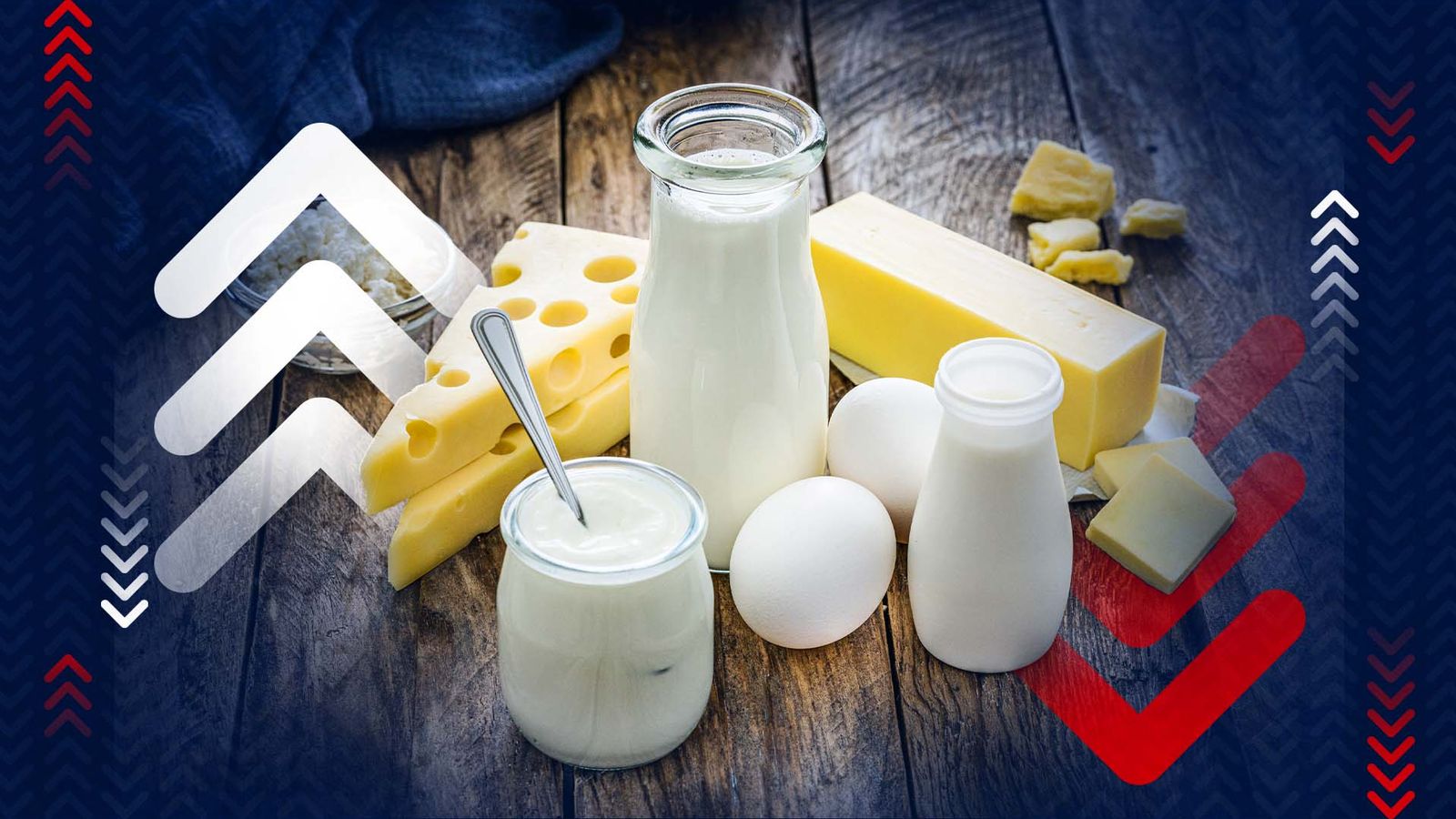Falling fuel, milk, cheese and eggs prices have helped a surprise drop in inflation, while sugar, jam and syrups have pushed to keep costs high, according to the latest figures.
The rate of price rises has dropped to 7.9% in the year up to June, down from 8.7% last month.
Economists had predicted the CPI would only fall to 8.2%, but falling petrol and diesel costs, and a slowing down in food price rises, led to a larger-than-expected drop.
Inflation latest: Interest rate forecasts change sharply
Sky News looks at what is behind the figures – and what is keeping prices high.
Transport
The easing in the annual rate for transport was almost entirely because of changes in the price of motor fuels.
The cost of fuel fell by 22.7% in the year to June 2023, compared to a fall of 12.1% in May.
Average petrol and diesel prices stood at 143.0 and 145.7 pence per litre respectively in June 2023, compared with 184.0 and 192.4 pence per litre in June 2022.
Food
The rate of food inflation has fallen to 17.3% in June, down from 18.3% in May.
The largest reason for this drop came from milk, cheese and eggs prices, with the annual rate easing to 22.8% from 27.4% in May.
There were other, smaller downward effects from meat (mostly from pork products), and bread and cereals.
Inflation for these products has been high – and often a driver of price rises – because of the increased costs of production for dairy farmers. The costs of cattle, animal feed and farm labour have all risen in the past year, although this has eased in the last month, helping push inflation down.
But two small, partially offsetting upward effects came from sugar, jam, syrups, chocolate, and confectionery (particularly chocolate), and mineral waters, soft drinks, and juices.
This is in part because India, the world’s second-largest producer of sugar, is cutting export after rains hurt the sugar cane crop and the country diverts more sweeteners to biofuel.
Raw materials and factories
Also falling was the cost of raw materials – they dropped 2.7% in price – the first time they’ve actually become cheaper since late 2020, the ONS said.
The price of goods leaving factories grew 0.1%, down from a rise of 2.7%.
Prices have been rising since the later pandemic years as supply chain problems and difficulty sourcing goods pushed costs up. The war in Ukraine and the ensuing energy crisis saw gas bills at record highs which pushed up costs across the economy. But as wholesale oil and gas prices ease, this has had a knock-on effect on inflation.
Furniture and household goods
The falling cost of raw materials has also seen this category down to 6.6% from 7.5% in May – the lowest recorded rate since November 2021.
Follow the Daily podcast on Apple Podcasts, Google Podcasts, Spotify, Speaker
This was partly caused by a drop in prices from a wide range of lounge, bedroom, kitchen and dining room furniture.

